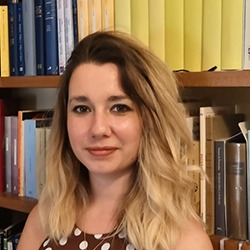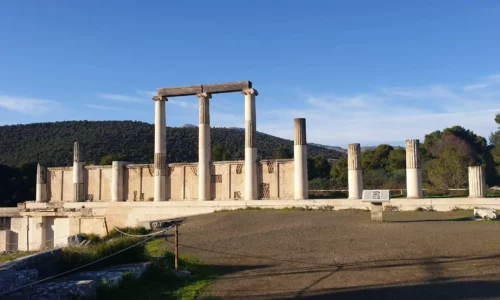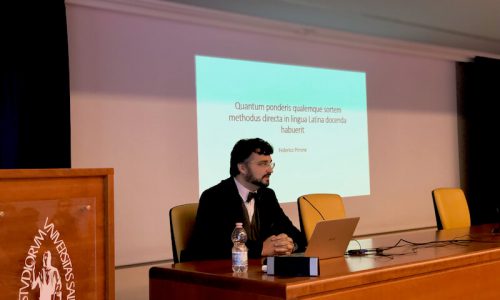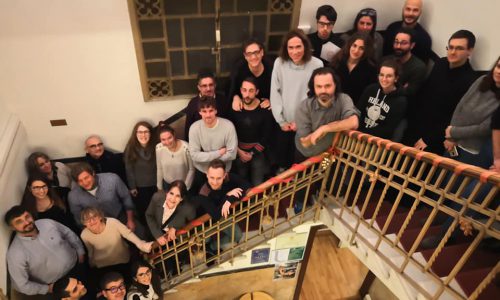Ancient Greek
- Home
- Courses
- Ancient Greek
- Ancient Greek 2
Ancient Greek 2
Such an exceptional endeavor cannot be left unfinished: this course is essential for acquiring all the skills and abilities to master the language spoken in Athens in the 5th century BC, which now reveals itself in a new light and takes on an entirely different musicality. Our distant origins are no longer inaccessible but come to meet us!
Overview
Admission
The course may be attended by:
– Those who have attended at least 75% of the lesson hours of Ancient Greek 1 or Ancient Greek 1 Online or Ancient Greek 1 Telematic;
– those who, having sound knowledge of Ancient Greek, are able to pass the exam of Ancient Greek 1 without having attended classes.
Objectives
- Understanding of any Ancient Greek text, even of high difficulty, without using the dictionary
- In-depth knowledge of all the most complex structures of Greek syntax and Classical literary style
- Knowledge of the 2500 most frequent words in Greek classical literature
- Ability to write and speak in Ancient Greek
- Understanding of the basic techniques for teaching a lesson of Greek language through the inductive-contextual methodology.
Program
The course fulfills and completes the study of Greek grammar and phraseology started in the course Ancient Greek 1. Through the reading of texts in Ancient Greek, which are designed to encourage language learning, students deal with the most complex issues of Classic Greek syntax and phraseology.
Lessons will be held completely in Ancient Greek: following the fundamentals of the inductive-contextual methodology, the active use of Greek language both by the students and the teacher turns passive learning into an active competence, thus ensuring a sound knowledge of the language.
The course will be held in classroom. Upon request at the moment of the enrollment, the course may be also attended online. The IISC will provide students a link to access the virtual classroom and attend the course via live streaming. Lessons in streaming will be recorded and they will stay available for the students to see for a week.
At the end of the course, students will go on a 2 days field-trip, where Ancient Greek will be the only language of communication: there will be reading of classical texts, lessons and visits to archeological sites.
CONTINUE STUDYING WITH US
Upon the completion of the course, students who have attended at lest the 75% of class hours, may access the course of Ancient Greek 3 – Greek Literature.
It is of the utmost importance that students have their textbooks since the first day of classes.
1. M. Balme – G. Lawall – J. Morwood, Athenaze, Book II: An Introduction to Ancient Greek, Revised Third Edition, Oxford University Press
2. M. Balme – G. Lawall – J. Morwood, Athenaze, Workbook II: An Introduction to Ancient Greek, Revised Third Edition, Oxford University Press
3. Excerpts (provided by the instructor) of Greek classics, including passages from Plato, Homer, Aristophanes and Thucydides and others
Recommended readings (the following texts are not required for the exam, but are recommended for those who wish to strengthen their knowledge):
1. L. Rocci, Grammatica greca, Società editrice Dante Alighieri
2. C. Pharr, Homeric Greek, D. C. Heat & Co. (See the link)
3. E. G. Jay, Grammatica greca del Nuovo Testamento (a cura di R. Calzezzhi-Onesti), BE Edizioni
4. Joint Association of Classical Teachers, Reading Greek, Cambridge University Press.
– Students who have attended at least 75% of class hours may obtain a course completion certificate.
– Those who wish to obtain university certifications (6 CFU/ECTS) should pass the final exam with an evaluation fo at least 18/30. The exam will consist in a written test structured as follows: (a) grammatical competences, (b) comprehension of a written text, (c) production of a written text.
In virtue of an agreement between the Italian Institute of Classical Studies (IISC) and the Faculty of Classics of the Salesian Pontifical University (UPS) – whose titles are recognized by Italy – the ECTS issued at the IISC are automatically recognized for the student enrolled at the UPS and they are recognizable at the Italian Universities (without prejudice to the discretion granted to the universities by the Italian law).
The course is also recognized by the MIUR – Regional School Office for Lazio as valid for the professional training of teaching staff.
First lesson
Last lesson
No class days
2025 December, 29
2026 January, 5
2026 April, 6
DIDACTICAL FIELD-TRIPS
2) Tarquinia (VT): from Sat 2026 May, 23 (3:00 p.m.) to Sun May, 24 (7:00 p.m.)
Exam sessions
2026 July, 16
2026 September, 17
First lesson
Last lesson
No class days
2025 January, 2
2025 April, 24
2025 May, 1
DIDACTICAL FIELD-TRIPS
Exam sessions
2025 June, 16
2025 September, 15
Instructor
Flavia Farina teaches Philosophy and Theory of Action in the Antiquity at the Roma Tre University.
She was visiting scholar in Philosophy at the Oxford University. She was a Post-Doc research fellow for the PRIN Project “Ethics and Technology“. She earned, with honors, a PhD in Ancient Philosophy (Roma Tre – Tor Vergata / Sorbonne Université). She graduated with honors in Philosophical Sciences (Roma Tre University).
She has written papers both in national and international journals, such as “Degrees of Culpability and Voluntary Actions” (Elenchos), “Gli eph’hemin e l’unidirezionalità degli abiti – una conciliazione possibile tra le Etiche di Aristotele” (Méthexis), “Aristotle on (second) nature, habit and character” (R. Chiaradonna, F. Farina – Routledge).
She mainly deals with Aristotle, ancient ethics and Hellenistic Greek.
You May Like
Ancient Greek Conversation and Composition 2
- Dates and times: Monday 4:45 - 5:30 pm (November-May)
- Teaching method: in presence and online (live streaming)
Admission The course may be attended by: those who are attending also the course of Ancient Greek 2, Ancient Greek …
History and Theory of Teaching Latin and Greek
- Dates and times: one afternoon per week (November-December)
- Teaching method: in presence and online (live streaming)
Admission Knowledge of Latin and/or Ancient Greek language is required or, alternatively, the attendance of one of the following courses: …
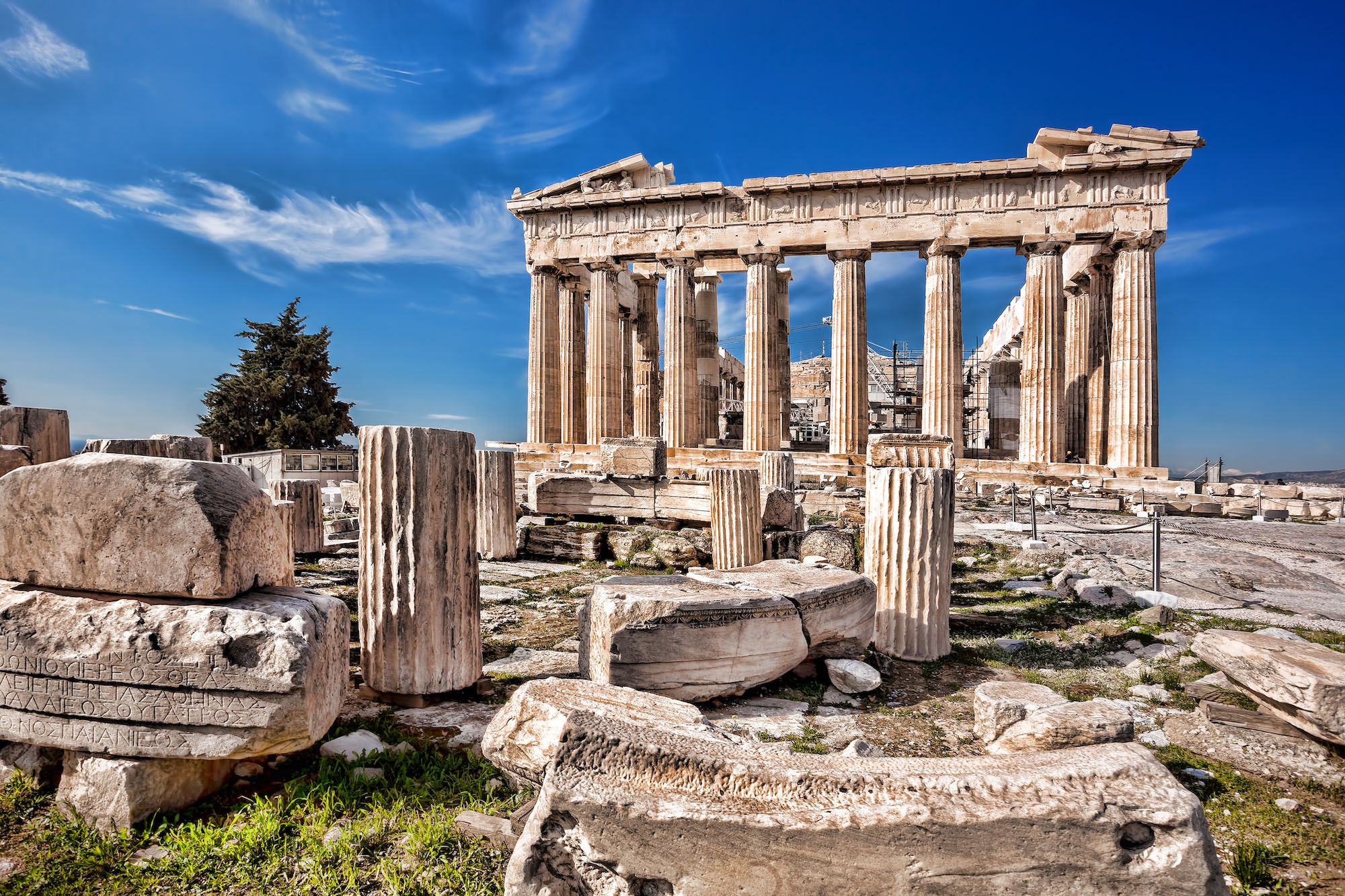
- Start/end dates: 2025 October, 20 - 2026 May, 25
- Teaching method: in presence and online (live streaming)
- Schedule: Monday 5:30 - 7:30 pm (+ 1 didactic field-trip)
- Duration: 60 hours (28 lessons)
- Titles released: 6 CFU / ECTS + Teachers’ updating, recognized by the MIUR
- Language Ancient Greek
- Limited enrollment: up to 20 participants
- Academic fees: € 690 (payable in instalments)

